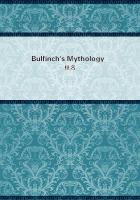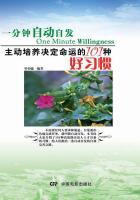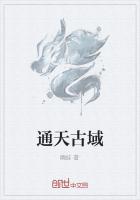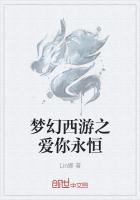It cannot positively be asserted that all the verses in question relate to the period of his in-cumbency, for none of his verse is dated, with the exception of the Dialogue betwixt Horace and Lydia. The date of some of the composi-tions may be arrived at by induction. The re-ligious pieces grouped under the title of Noble Numbers distinctly associate themselves with Dean Prior, and have little other interest. Very few of them are "born of the royal blood."
They lack the inspiration and magic of his secu-lar poetry, and are frequently so fantastical and grotesque as to stir a suspicion touching the ab-solute soundness of Herrick's mind at all times.
The lines in which the Supreme Being is as-sured that he may read Herrick's poems with-out taking any tincture from their sinfulness might have been written in a retreat for the un-balanced. "For unconscious impiety," remarks Mr. Edmund Gosse, <1> "this rivals the famous passage in which Robert Montgomery exhorted God to 'pause and think.'" Elsewhere, in an apostrophe to "Heaven," Herrick says:
Let mercy be So kind to set me free, And I will straight Come in, or force the gate.
In any event, the poet did not purpose to be left out!
Relative to the inclusion of unworthy pieces <1> In <i>Seventeenth-Century Studies</i>.
and the general absence of arrangement in the "Hesperides," Dr. Grosart advances the theory that the printers exercised arbitrary authority on these points. Dr. Grosart assumes that Herrick kept the epigrams and personal tributes in manuscript books separate from the rest of the work, which would have made a too slender volume by itself, and on the plea of this slender-ness was induced to trust the two collections to the publisher, "whereupon he or some un-skilled subordinate proceeded to intermix these additions with the others. That the poet him-self had nothing to do with the arrangement or disarrangement lies on the surface." This is an amiable supposition, but merely a supposition.
Herrick personally placed the "copy" in the hands of John Williams and Francis Eglesfield, and if he were over-persuaded to allow them to print unfit verses, and to observe no method whatever in the contents of the book, the dis-credit is none the less his. It is charitable to believe that Herrick's coarseness was not the coarseness of the man, but of the time, and that he followed the fashion <i>malgre lui</i>. With re-gard to the fairy poems, they certainly should have been given in sequence; but if there are careless printers, there are also authors who are careless in the arrangement of their manuscript, a kind of task, moreover, in which Herrick was wholly unpractised, and might easily have made mistakes. The "Hesperides" was his sole publication.
Herrick was now thirty-eight years of age.
Of his personal appearance at this time we have no description. The portrait of him prefixed to the original edition of his works belongs to a much later moment. Whether or not the bovine features in Marshall's engraving are a libel on the poet, it is to be regretted that oblivion has not laid its erasing finger on that singularly un-pleasant counterfeit presentment. It is interest-ing to note that this same Marshall engraved the head of Milton for the first collection of his mis-cellaneous poems--the precious 1645 volume containing Il Penseroso, Lycidas, Comus, etc.
The plate gave great offense to the serious-minded young Milton, not only because it re-presented him as an elderly person, but because of certain minute figures of peasant lads and lassies who are very indistinctly seen dancing frivolously under the trees in the background.
Herrick had more reason to protest. The ag-gressive face bestowed upon him by the artist lends a tone of veracity to the tradition that the vicar occasionally hurled the manuscript of his sermon at the heads of his drowsy parishioners, accompanying the missive with pregnant re-marks. He has the aspect of one meditating assault and battery.
To offset the picture there is much indirect testimony to the amiability of the man, aside from the evidence furnished by his own writ-ings. He exhibits a fine trait in the poem on the Bishop of Lincoln's imprisonment--a poem full of deference and tenderness for a person who had evidently injured the writer, probably by opposing him in some affair of church prefer-ment. Anthony Wood says that Herrick "be-came much beloved by the gentry in these parts for his florid and witty (wise) discourses." It appears that he was fond of animals, and had a pet spaniel called Tracy, which did not get away without a couplet attached to him:
Now thou art dead, no eye shall ever see For shape and service spaniell like to thee.
Among the exile's chance acquaintances was a sparrow, whose elegy he also sings, comparing the bird to Lesbia's sparrow, much to the latter's disadvantage. All of Herrick's geese were swans.
On the authority of Dorothy King, the daughter of a woman who served Herrick's successor at Dean Prior in 1674, we are told that the poet kept a pig, which he had taught to drink out of a tankard--a kind of instruction he was admir-ably qualified to impart. Dorothy was in her ninety-ninth year when she communicated this fact to Mr. Barron Field, the author of the paper on Herrick published in the "Quarterly Review" for August, 1810, and in the Boston edition <1> of the "Hesperides" attributed to Southey.
What else do we know of the vicar? A very favorite theme with Herrick was Herrick. Scat-tered through his book are no fewer than twenty-five pieces entitled On Himself, not to men-tion numberless autobiographical hints under other captions. They are merely hints, throw-ing casual side-lights on his likes and dislikes, and illuminating his vanity. A whimsical per-sonage without any very definite outlines might be evolved from these fragments. I picture him as a sort of Samuel Pepys, with perhaps less quaintness, and the poetical temperament added.


